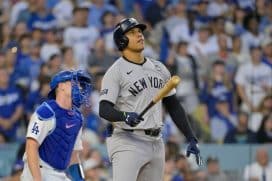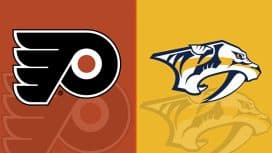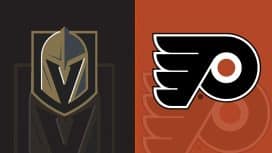Phillies
Dick Allen’s Story in the Classroom and the Museum
By: Matt Alberston, Historical Columnist
On February 22, a group of Dick Allen fans presented Dick Allen's story to students at Archbishop Ryan High School. The group consisted of former Phillies grounds crew member Mark "Frog" Carfagno, Dick Allen Jr., Phillies public address announcer Dan Baker, Villanova law professor and Dick Allen biographer Mitch Nathanson, local SABR chapter president Dick Rosen, Bob Wagner, and former KYW Newsradio reporter Ken Shuttleworth.
The crew regaled the students with tales of Allen's terrific strength and baseball skills. But they also presented the social aspect to Allen's career and his status as the most misunderstood player in baseball history. It was a grassroots effort to educate youngsters about a man who dealt with a critical fan base and media, some of whom were motivated by racial stereotypes.
Carfagno has dedicated the majority of his time to rehabilitate Allen's image and convince the members of the Hall of Fame's Veteran's Committe that Dick Allen is a bonafide Hall of Famer. "I saw the eyes, especially the boys in the class, light up," Carfagno said. The visit was also an effort to help rehabilitate Allen's public image and right decades of wrongs. Phillies public address announcer Dan Baker touched on the turmoil that surrounded Allen throughout his career. Despite the negative press, Baker told the students that when he was a teacher in the Philadelphia public school system he would bring students down to the field at Connie Mack Stadium and Allen went out of his way to speak with the kids.
Former KYW newsradio reporter Ken Shuttleworth, who worked the back beat in the 1960's, explained the challenges African-Americans faced in Philadelphia during that era, especially for a black superstar baseball player. Shuttleworth said "[Allen] wasn't going to put himself in any kind of a box or do a dance or a shuffle for the press people and for anybody else, he was just gonna stand there and be black."
The group brought visual aids with them which showed Allen's statistics and where he ranks among other players in the era (generally speaking, near the top of the league in offensive categories). "We had posters spread out all over the classroom," Carfagno said, who publicly believes there is a conspiracy to keep him out of the Hall of Fame – an opinion held by a contingent of fans and those in the baseball community. Given Allen's statistics and performance in what is sometimes referred to as a "second deadball era", such an opinion isn't unreasonable. "It's wrong [that Allen isn't in the Hall of Fame already]…I screamed it out, that's the way I operate. I speak and speak from my heart." Carfagno explained.
For anyone who hasn't met "Frog" in person you're really missing out – he's one of the most passionate Phillies fans on the planet and the biggest Dick Allen fan in the universe. His leadership of the "Dick Allen Belongs in the Hall of Fame" campaign forced baseball historians and fans alike to reevaluate Dick Allen as a player and critical person in baseball's immediate post-integration era; Allen came up one vote shy of Hall of Fame induction in 2015.
Carfagno received an email from the principal of Archbishop Ryan High School the day after the presentation and said that students were still talking about the presentation and several parents sent emails to the principal thanking him for permitting Carfagno and his crew to give the presentation. "[It] made the students aware of all the racial turmoil that happened in the 60's and how it affected Dick Allen."
—
Dick Allen is one of the most misunderstood athletes in sporting history. His story bridges the racism of the Jackie Robinson era and the period before free agency. It was a precarious position for a young superstar to be ushered into and Allen's actions made him a controversial figure throughout his career through the present day. This misunderstanding has unfortunately prevented Allen's induction into baseball's Hall of Fame.
Philadelphia holds an important place in America's racial history, a narrative that can be told in part through baseball. The city was the site of the first interracial baseball game on September 3, 1869 between the all-white Olympic ball club and the all-black Pythian ball club. It was a game that was heralded as the first of its kind in newspapers throughout the country as the Olympics defeated the Pythians, captained by the prominent civil rights activist Octavius V. Catto, at the Jefferson Street Grounds. In 1884, Philadelphians gave a standing ovation at Athletic Park to Toledo's Moses Fleetwood Walker, the first African-American to play major league baseball.
Yet the narrative changed by the time Phillies manager Ben Chapman mercilessly berated and taunted Brooklyn Dodgers rookie Jackie Robinson with racial slurs in 1947. The Phillies were one of the very last major league clubs to integrate, doing so when John Kennedy in 1957. Black stars began to enter the league as clubs plucked the talented negro leagues of their best talent – Jackie Robinson with the Dodgers, Larry Doby with the Indians, Willie Mays with the Giants, and Henry Aaron with the Braves to name a few.
Fans throw smoke bombs at Dick Allen during a game at Connie Mack Stadium. Image courtesy Mark Carfagno
Dick Allen was among the second generation of black major league stars and his story appeared as the concluding piece to Sports Talk Philly's series on Race and Baseball in Philadelphia last year during Black History Month. In recent years, several people including baseball historians have worked tirelessly to reevaluate Dick Allen and his baseball career. He was more than just a player who could hit multiple 500 foot home runs at Connie Mack Stadium.
Two books have appeared on Allen with one more to be released next month. One of these books, God Almighty Hisself: The Life and Legacy of Dick Allen written by Villanova law professor Mitch Nathanson, is according to Doug Glanville is "an unapologetic view of the collision between the ultra-talented and complex Dick Allen and major league baseball's tumultuous post-integration era." The book exposes the entrenched racial double standard that existed prior to integration and informs of the forces which sought to preserve the racial status quo in baseball. Nathanson's book, combined with other scholarship, has helped baseball fans reconsider Allen's career and his confrontational actions.
One of the most effective learning devices that a museum or historic site can employ is the controversial narrative. It forces people to evaluate how they feel about a subject and perhaps reconsider things they've heard in passing. The Hall of Fame is, by definition, a museum. Allen stood his ground as an individual and challenged the status quo in baseball, similar to other black ball players of the era like Curt Flood and Doc Ellis. His attitude rubbed the establishment and many fans the wrong way which hastened his exit from Philadelphia in 1969. I believe that Allen's story can highlight the neglected second generation of black superstars and his induction into the Hall of Fame would allow the museum to challenge visitors by presenting the struggles and challenges faced by black athletes in the 1960's and 1970's.
For those interested in supporting Mark Carfagno's campaign to get Dick Allen into the Hall of Fame, be sure to check out the Facebook group here. Additionally, it's important that people sign the "Dick Allen Belongs in the Hall of Fame" petition so that Allen can once again be placed on the ballot for the Veteran's Committee's consideration in the future. The petition can be found here. Lastly, the local Connie Mack chapter of the Society for American Baseball Research is planning a Dick Allen symposium. Information to the symposium will be posted on Sports Talk Philly once it is available.





